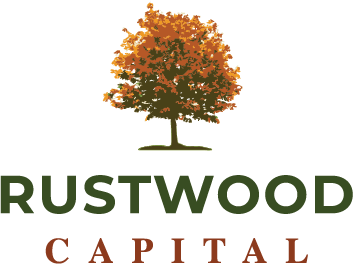These days, there are more and more alternative financing companies joining the financing market. Many people have questions about alternative financing. In this article, we’re going to explain the alternative financing ecosystem and help you decide the best options for your business.
What is causing this change?
An acceleration in the adoption of technology, which has been happening much faster in recent years. Since more people are working remotely from home, there has been an increase in the need for digital services and many companies must pace the demands of the market.
Due to this transition, startups need financing to adapt to the market and expand. The competition in the tech industry is high and it’s critical that companies have access to the funds they need to meet this moment in their business journey.
According to the quarterly Senior Loan Officer Survey, banks in the U.S. saw a significant increase in the demand for business funding. In order to meet demands of founders, new financial service providers are emerging, including venture backed tech companies, private financing partners, and small banks. There are several options.
Alternative Financing Defined
Alternative financing is funding available outside of major banks, it provides founders with flexibility and variety for choosing financial services solutions. Alternative financing is a category of financing products, which addresses gaps in the mainstream financial markets.
This is part of a larger movement of financial inclusion in which more people are gaining access to formal banking options. Financial inclusion is the process of making sure that businesses have a responsible, sustainable way to access to useful, affordable financial products that meet their needs.
For example, how can financial institutions serve people with an imperfect credit history or those who don’t qualify for a traditional mortgage? What about companies that don’t qualify for a traditional bank loan?
According to Morgan Stanley, alternative financing models are arising due to an opportunity in the market for individual investors. This includes online platforms and peer-to-peer (P2P) financing that use tech to bring together founders that are underserved by traditional financial institutions. Alternative financing offers products to those who cannot qualify for bank loans or would receive loans with unfavorable terms.
The industry is expanding and evolving. Alternative financing provides businesses and people a choice over their options for funding.
Alternative Financing Examples
There are lots of financial products out there, so it’s a good idea to shop around and learn more about your options before committing to one. Here are some of your options:
- Invoice Financing/Factoring
- Crowdfunding
- P2P Lending
- Lines of credit
- Term loans
- Merchant cash advances
- Revenue-based financing
Equity versus Non-Equity Financing
Alternative financing provides business owners and financing partners the tools to avoid dilution and hold on to equity. Debt products and lines of credit don’t require business owners to give up ownership of their business.
Therefore, business owners can increase their access to working capital without depending on a venture capital firm to invest. Instead of taking on funding, businesses can use revenue streams to manage cash flow and ensure they have the money they need in the bank.
Non-equity financing can help stabilize businesses, especially if there are payment delays or other unforeseen circumstances. Alternative financing provides plenty of options for business owners.
Things to Keep in Mind
Many business owners feel like understanding alternative financing is a challenge, especially when they have time constraints for securing capital. Contact Rustwood Financial if you need help learning more about alternative financing and finding the best solution for your business.






